Kansas: The most important race in the country
Kansas: The most important race in the country

The American Left and strategic thinking Reagan Republicans agree: The re-election campaign of Kansas Governor Sam Brownback is now the most important race in America.
Kansas? Governor? We were all told that the fight to control the United States Senate was the end all and be all of 2014.
But the direction of the country will be set by the Kansas race. Why? Kansas is a relatively small state with only four congressmen. Why would anyone notice one state’s governor?
Bureaucrat Paid $107,000 Salary to Help L.A. Integrate Illegal Aliens
Bureaucrat Paid $107,000 Salary to Help L.A. Integrate Illegal Aliens
Director of the Office of Immigrant Affairs, Linda Lopez, tells illegal immigrants in Los Angeles, "You don't have to fear. We're here to help you."
The Los Angeles Times reported on Monday that Mayor Eric Garcetti appointed the 44-year-old bureaucrat with a Doctorate in Political Science from USC to help him overhaul the nation's immigration laws. So far she has at least one feather in her cap for leading the charge to prevent the practice of holding illegal immigrant inmates after their date of release so federal agents could take them into custody.Boehner Parties in the Hamptons, Tells Joy Behar: 'I Am Obama's Best Friend'
Boehner Parties in the Hamptons, Tells Joy Behar: 'I Am Obama's Best Friend'

House Speaker John Boehner put comedienne Joy Behar in a headlock this weekend while in the Hamptons campaigning for Republican Lee Zeldin, telling the liberal former co-host of The View, “I am Obama’s best friend."
Pentagon: Majority of Tomahawk Missiles in Syria Airstrikes Aimed at Khorasan Group
Pentagon: Majority of Tomahawk Missiles in Syria Airstrikes Aimed at Khorasan Group

(Washington, D.C.) -- The Pentagon said today that most of the 40-plus Tomahawk cruise missiles that the United States launched in its airstrikes in Syria last night were aimed at members of a fairly unknown al Qaeda affiliate, the Khorasan Group, who were plotting "imminent" attacks against the American homeland.
“Intelligence reports indicated that the Khorasan Group was in the final stages of plans to execute major attacks against Western targets and potentially the U.S. homeland," U.S. Army Lt. Gen. William C. Mayville Jr., director of operations for the Joint Chiefs of Staff, told reporters during a Pentagon press briefing today.Obama Defends Islam, Smacks Israel, American Racism at UN
Obama Defends Islam, Smacks Israel, American Racism at UN
On Wednesday, on the first anniversary of President Barack Obama’s speech to the United Nations in which he called for ouster of Syrian dictator Bashar Assad, Obama attempted to rally support for his airstrikes against Assad’s terrorist opposition. Taking on issues ranging from Iran to Russia, from Ukraine to Syria, from global warming to Ebola, Obama pledged to utilize American might in service to the United Nations, speaking grandly of the beauty and power of the world’s least effective and most morally bankrupt international institution.
Joseph McNamara: An appreciation
Joseph McNamara: An appreciation
McNamara’s voice was particularly important for a variety of reasons. First and foremost, he had 35 years of policing experience, rising through the ranks from beat cop in Harlem to police chief in both Kansas City, Mo., and San Jose, Calif. Second, because his politics were well to the right of most law-enforcement critics, McNamara held more sway with lawmakers and policymakers. From his post-retirement perch at the conservative Hoover Institution, McNamara was a lonely voice of dissent on the right in the 1990s (along with Milton Friedman), as the law-and-order faction moved to vastly expand the search and seizure powers of police, increase penalties for drug crimes, and infuse crime fighting with martial rhetoric and militarized weaponry.
10 tips for picking a better president

President Obama makes a statement on recent U.S. and allied airstrikes against the Islamic State in Syria. (Win McNamee/Getty Images)
2. A president prepared to act decisively with the best military strategy available to him, free from conditions and prerequisites that delay action until the enemy is dug in. Airstrikes make for good maps and video but, as Max Boot and countless other military experts tell us:
Their military significance is likely to be scant until the U.S. can do more to train and arm forces capable of mounting ground attacks on ISIS militants. Already six weeks of U.S. air strikes in Iraq have failed to dislodge ISIS from its strongholds; there is no reason to believe that six months of air strikes in isolation will work any better. As former Defense Secretaries Bob Gates and Leon Panetta have said, it will take “boots on the ground” from the United States to galvanize and train the potential anti-ISIS forces. But because President Obama is so far prohibiting U.S. troops from working alongside anti-ISIS fighters in the field, “there’s not a snowball’s chance in hell” of the current strategy succeeding–to quote the succinct summary of retired Gen. Jim Conway, former commandant of the Marine Corps.
Obama’s uncertain trumpet, again
President
Obama addresses the nation from the Cross Hall in the White House in
Washington, Wednesday, Sept. 10, 2014. (The Associated Press)
In his Islamic State speech,
President Obama said many of the right things. Most importantly, he
finally got the mission right: degrade and destroy the enemy.
This alone will probably get him a bump in the polls, which have dropped to historic lows. But his strategic problem remains: the disconnect between (proclaimed) ends and means.He’s sending an additional 475 American advisers to Iraq. He says he’s broadening the air campaign, but that is merely an admission that the current campaign was always about more than just protecting U.S. personnel in Irbil and saving Yazidis on mountaintops. It was crucially about providing air support for the local infantry, Kurdish and Iraqi.
Obama is defying the Constitution on war
Obama is defying the Constitution on war
The
United States last declared war many wars ago, on June 5, 1942, when,
to clarify legal ambiguities during a world conflagration, it declared
war on Hungary, Romania and Bulgaria. Today’s issue is not whether to declare war but only whether the president should even seek congressional authorization for the protracted use of force against the Islamic State.
Promising to “destroy”
this group with the help of “a broad coalition” of “partners,”
President Obama said last week, “I welcome congressional support for
this effort.” He obviously thinks such support is optional, partly
because this “effort,” conducted by U.S. combat aircraft, is something
other than war. There he goes again.Gian Gentile: The U.S. Army must remain prepared for battle
Gian Gentile: The U.S. Army must remain prepared for battle
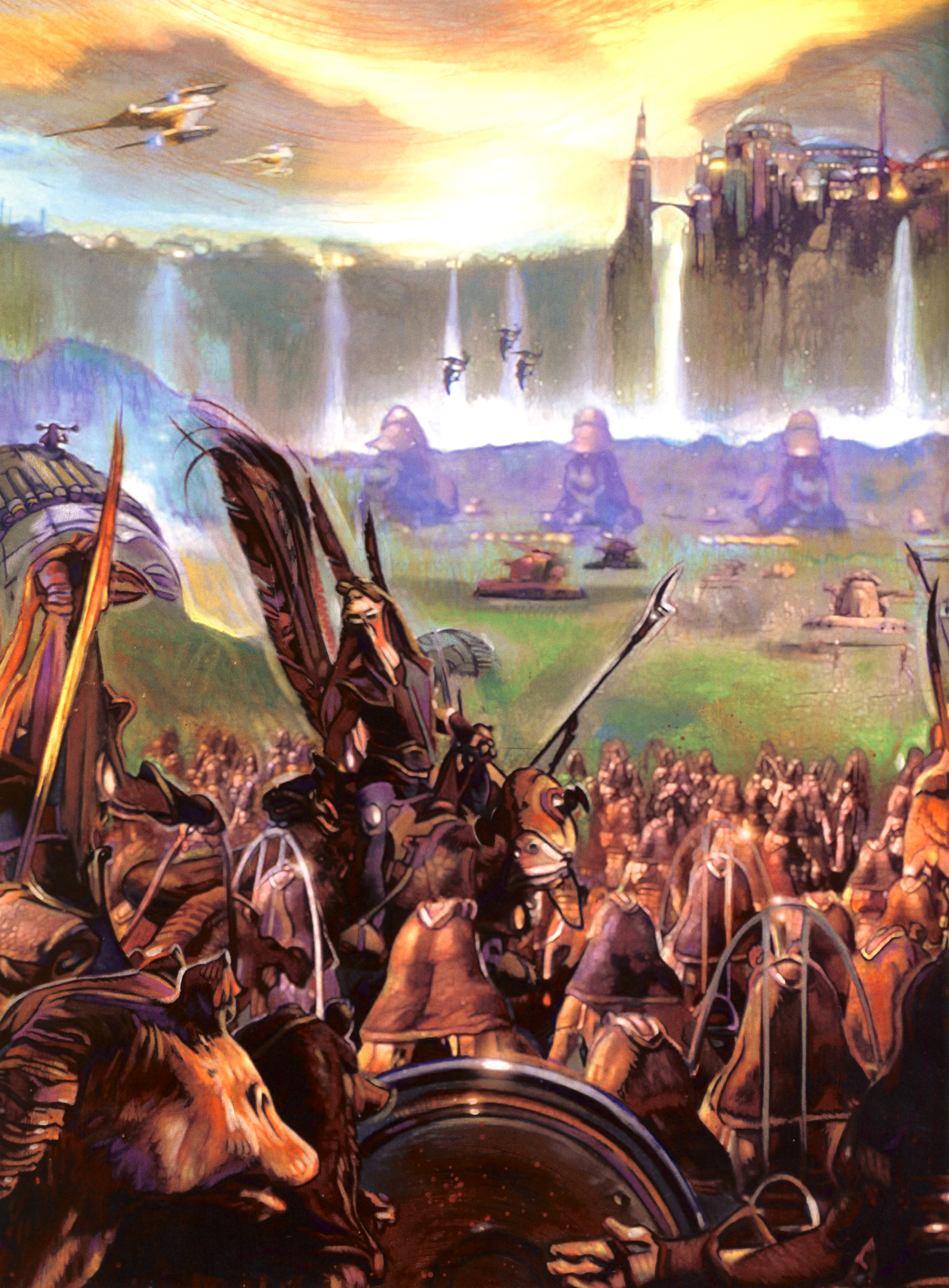
Gian Gentile is a senior historian at the nonprofit, nonpartisan Rand Corp.
Gen. Matthew Ridgway , who took command of U.S. forces in Korea in December 1950, famously wrote that the “ primary purpose of an army [is] to be ready to fight effectively at all times .” Ridgway arrived in Korea at a low point in the war: The Chinese had launched a counteroffensive across the Yalu River and pushed a dispirited and disorganized U.S. Army all the way south past Seoul.
How had the force that had driven the German army across France and back into Germany just five years earlier, at the end of World War II, lost the ability to fight effectively?
Obama endures as the lesser evil for liberals
Obama endures as the lesser evil for liberals

Anti-war activists, angered by military strikes in Syria, block the northwest gate of the White House on Pennsylvania Avenue in Washington, Tuesday, Sept. 23, 2014. (J. Scott Applewhite/AP)
The anti-Obama left was out in force. All 22 of them.
As
the president stood on the South Lawn to announce the bombing campaign
in Syria, liberal demonstrators gathered on Pennsylvania Avenue on the
other side of the White House to protest the man they thought was their
ally.“When you were elected president, people had such hope for a change,” Malachy Kilbride of the National Campaign for Nonviolent Resistance proclaimed through a handheld amplifier. “What we got was a government that continued the policies of the Bush administration! You are NOT the people’s president, and the voices of the people are not being heard.”
Interpreting the Islamic State’s jihadi logic
Interpreting the Islamic State’s jihadi logic

Secretary of State John Kerry gestures as he testifies on Capitol Hill in Washington. (Carolyn Kaster/AP)
What
was the Islamic State thinking? We know it is sophisticated in its use
of modern media. But what was the logic of propagating to the world videos of its beheadings of two Americans (and subsequently a Briton) — sure to inflame public opinion?
There
are two possible explanations. One is that these terrorists are more
depraved and less savvy than we think. They so glory in blood that they
could not resist making an international spectacle of their savagery —
after all, they proudly broadcast their massacre of Shiite prisoners —
and did not quite fathom how such a brazen, contemptuous slaughter of
Americans would radically alter public opinion and risk bringing down upon them the furies of the U.S. Air Force.A war strategy takes shape
A war strategy takes shape

U.S. President Barack Obama makes a statement on US and allied airstrikes against the Islamic State in Syria, from the South Lawn of the White House, in Washington DC, USA, 23 September 2014. (Win Mcnamee / Pool/EPA)
The
symbolism Tuesday was appropriate for a nation at war: A somber
president in a plain blue suit describing military strikes in Syria the
night before, an American flag fixed in his lapel while a Marine Corps
helicopter waited behind him.
President Obama’s message was dry as bone: The United States has gone into battle again,
in yet another Muslim country, to attack the menace of violent
extremism. This time, at least, the president could announce that U.S.
military action against Muslim targets was joined by a coalition of
leading Arab nations: Saudi Arabia, the United Arab Emirates, Jordan,
Bahrain and Qatar.Tuesday, September 23, 2014
Check out some of Hillary’s letter correspondence with the infamous Saul Alinsky
Check out some of Hillary’s letter correspondence with the infamous Saul Alinsky
Associated Press
Hillary Clinton’s dabblings in the work of
the preeminent community organizer Saul Alinsky has been well-documented
by others, but much of that stems from the thesis she wrote about
“Rules for Radicals.”
Now, the Washington Free Beacon has uncovered letter correspondence between Clinton — then Rodham — and Alinsky’s secretary, wherein she asked for a copy of “Rules for Radicals” and accepted the joys and pains of her commitment to helping create “a free and open society.”
A screenshot of her letter sits below:
Now, the Washington Free Beacon has uncovered letter correspondence between Clinton — then Rodham — and Alinsky’s secretary, wherein she asked for a copy of “Rules for Radicals” and accepted the joys and pains of her commitment to helping create “a free and open society.”
A screenshot of her letter sits below:
Centripetal and Centrifugal Forces at Work in the Nation-State
Centripetal and Centrifugal Forces at Work in the Nation-State
By Zhixing Zhang
"Here begins our tale: The empire, long divided, must unite; long united, must divide. Thus it has ever been." This opening adage of Romance of the Three Kingdoms, China's classic novel of war and strategy, best captures the essential dynamism of Chinese geopolitics. At its heart is the millennia-long struggle by China's would-be rulers to unite and govern the all-but-ungovernable geographic mass of China. It is a story of centrifugal forces and of insurmountable divisions rooted in geography and history -- but also, and perhaps more fundamentally, of centripetal forces toward eventual unity.
This dynamism is not limited to China. The Scottish referendum and waves of secession movements -- from Spain's Catalonia to Turkey and Iraq's ethnic Kurds -- are working in different directions. More than half a century after World War II triggered a wave of post-colonial nationalism that changed the map of the world, buried nationalism and ethnic identity movements of various forms are challenging the modern idea of the inviolable unity of the nation-state.
"Here begins our tale: The empire, long divided, must unite; long united, must divide. Thus it has ever been." This opening adage of Romance of the Three Kingdoms, China's classic novel of war and strategy, best captures the essential dynamism of Chinese geopolitics. At its heart is the millennia-long struggle by China's would-be rulers to unite and govern the all-but-ungovernable geographic mass of China. It is a story of centrifugal forces and of insurmountable divisions rooted in geography and history -- but also, and perhaps more fundamentally, of centripetal forces toward eventual unity.
This dynamism is not limited to China. The Scottish referendum and waves of secession movements -- from Spain's Catalonia to Turkey and Iraq's ethnic Kurds -- are working in different directions. More than half a century after World War II triggered a wave of post-colonial nationalism that changed the map of the world, buried nationalism and ethnic identity movements of various forms are challenging the modern idea of the inviolable unity of the nation-state.
A Trenchant Yet Flawed Analysis of American Foreign Policy
by Ted Galen Carpenter
Angelo Codevilla’s analysis
of the many problems associated with U.S. foreign policy provides an
abundance of important insights. He is devastatingly on the mark when he
contends that since the beginning of the 20th century, U.S.
officials have transformed the Founders’ emphasis on shielding the
American people against external dangers into an arrogant, unattainable
objective of leading (and improving) all mankind. That is the essence of
the approach first embraced by Woodrow Wilson and subsequently
practiced by several generations of disciples.
Codevilla’s litany of the negative consequences from such hubris, while depressing, is supported by ample evidence. The situation has become especially unpleasant in recent decades and continues to get worse. Since the end of World War II, the United States has been entangled in some nine significant armed conflicts: Korea, Vietnam, Lebanon, the Persian Gulf War, Somalia, Bosnia, Kosovo, Afghanistan, and Iraq. That total does not even include numerous “minor” interventions, such as those in the Dominican Republic, Grenada, and Libya.
Codevilla’s litany of the negative consequences from such hubris, while depressing, is supported by ample evidence. The situation has become especially unpleasant in recent decades and continues to get worse. Since the end of World War II, the United States has been entangled in some nine significant armed conflicts: Korea, Vietnam, Lebanon, the Persian Gulf War, Somalia, Bosnia, Kosovo, Afghanistan, and Iraq. That total does not even include numerous “minor” interventions, such as those in the Dominican Republic, Grenada, and Libya.
How to Secure America’s Peace

Our
historically literate founding statesmen elaborated a foreign policy to
shield Americans’ exceptional way of life in a hostile world through
the timeless principles of statecraft. For more than a century, their
successors held to the Founders’ purpose and to those principles.
America grew great. Since the beginning of the 20th century,
however, a new generation of statesmen, consciously abandoning the
Founders’ way of thinking, has turned U.S. foreign policy from shielding
the American people against danger to improving or otherwise leading
the rest of mankind. Imagining that everyone, everywhere shares their
good intentions, they have conducted America’s international affairs
without connecting the ends they seek with the means they use.
A Grand Confusion of Language and of Understanding
 Here’s a summary of Peter Thiel’s take, as expressed recently in the Wall Street Journal, on the contrast between competition and monopoly:
Here’s a summary of Peter Thiel’s take, as expressed recently in the Wall Street Journal, on the contrast between competition and monopoly:Competition is not as marvelous, and monopoly is not as monstrous, as pop culture and economic theory proclaim. Entrepreneurial creativity brings incessant change, so competitive firms are lame nonentities while firms that win a monopoly position through innovation are magnificent benefactors to their owners and the general public alike.
Thiel is on the right track.
CIA Insider Warns: "25-Year Great Depression is About to Strike America"
CIA Insider Warns: "25-Year Great Depression is About to Strike America"
By MONEY MORNING STAFF REPORTS
You will want to remember this date
March 23, 2015.According to one of the top minds in the U.S. Intelligence Community, that is when the United States will enter the darkest economic period in our nation's history.
A 25-year Great Depression.
Does This Signal
the End of the Dollar?
An alarming pattern has caused many in the Intelligence Community to secretly prepare for a "worst-case scenario."
Click here to see it....
And alarmingly, he and his colleagues believe the evidence they've uncovered proves this outcome is impossible to avoid.the End of the Dollar?

An alarming pattern has caused many in the Intelligence Community to secretly prepare for a "worst-case scenario."
Click here to see it....
In an exclusive interview with Money Morning, Jim Rickards, the CIA's Financial Threat and Asymmetric Warfare Advisor, has stepped forward to warn the American people that time is running out to prepare for this $100 trillion meltdown.
"Everybody knows we have a dangerous level of debt. Everybody knows the Fed has recklessly printed trillions of dollars. These are secrets to no one," he said.
"But all signs are now flashing bright red that our chickens are about to come home to roost."
During the discussion, Rickards shared a series of dangerous signals he fears reveals an economy that has reached a super critical state.
The Next (Nasty) Economic Surprise?
By Robert Samuelson
WASHINGTON
-- We live in the shadow of "secular stagnation," to use a phrase now
fashionable among economists. Even assuming a full recovery from the
Great Recession, it's widely expected that the economy will grow more
slowly in the future than in the past. In part, this reflects baby
boomers' retirement, which reduces expansion of the labor force.
Pre-recession growth was also artificially boosted by cheap credit.
Forecasts have been cut, but they haven't been cut enough, says
economist Robert Gordon.
If he's right, this could be our next nasty economic surprise
Gordon, a respected Northwestern University scholar, contends that
mainstream economic growth predictions are wildly optimistic. His own
calculations are more restrained. By 2024, he reckons, the economy's
annual output (gross domestic product) will be nearly $2 trillion lower
-- almost 10 percent -- than projected by the Congressional Budget
Office (CBO). Government debt will be 87 percent of GDP in 2024 instead
of the CBO's estimate of 78 percent. Disappointing output will also
pressure the Federal Reserve to move earlier against inflation by
tightening credit, he says.If he's right, this could be our next nasty economic surprise
The gist of Gordon's argument is that the nation's productive capacity -- what economists call "the supply side" -- will expand only slowly. It won't keep up with the stronger consumer demand embodied in other forecasts. As a result, inflationary pressures will be higher and GDP lower. The "economy is on a collision course between demand-side optimism and supply-side pessimism," he writes in a study released by the National Bureau of Economic Research.
What Obama Knows
What Obama Knows
Every president gets things wrong. What sets Obama apart is his ideological rigidity and fathomless ignorance.
Serious people feel an obligation to listen whenever Barack Obama speaks. They furrow their brow and hold their chin and parse every word. They assume that most everything a president says is significant, which is true. They assume that what's significant must also be well-informed. Not necessarily.I've been thinking about this as it becomes clear that, even at an elementary level, Mr. Obama often doesn't know what he's talking about. It isn't so much his analysis of global events that's wrong, though it is. The deeper problem is the foundation of knowledge on which that analysis is built.
Here, for instance, is Mr. Obama answering a question posed in August by New York Times columnist Tom Friedman, who wanted the president's thoughts on the new global disorder.
¡SE LAS CANTÓ AL DICTADOR! Obama ante la ONU: “Leopoldo López merece serlibre” (+Video)

“Leopoldo López merece ser libre”, expresó el dirigente estadounidense al referirse también a otros presos políticos en el mundo. “Nos ponemos del lado de los detenidos: Leopoldo Loópez. Pierre Claver Mbonimpa. Ahmed Maher. Liu Xiabo. ilham tohti. Father Ly”.
“Estos ciudadanos nos recuerdan por qué la sociedad civil es tan esencial por empujar la rueda de la libertad”, dijo.
Alarming: Putin Could Soon Bring The U.S. Economy To Its Knees With One Simple Action
Russian President Vladimir Putin would love to...
The de-dollarization of the world economy continues to
proceed as countries around the world sign swap agreements to trade in
their own currencies and remove the US dollar from transactions with
their non-U.S. trading partners.
It is no secret that Russian President Vladimir Putin would love to further this process and damage the United States economically as much as possible by minimizing the use of the dollar globally, and undermining its status as a global reserve currency. The Western sanctions on Russia are starting to bite as the Ruble approaches forty to the dollar.
It is no secret that Russian President Vladimir Putin would love to further this process and damage the United States economically as much as possible by minimizing the use of the dollar globally, and undermining its status as a global reserve currency. The Western sanctions on Russia are starting to bite as the Ruble approaches forty to the dollar.
Obama Returning to Hispanic Caucus Event Amid Some Latino Anger
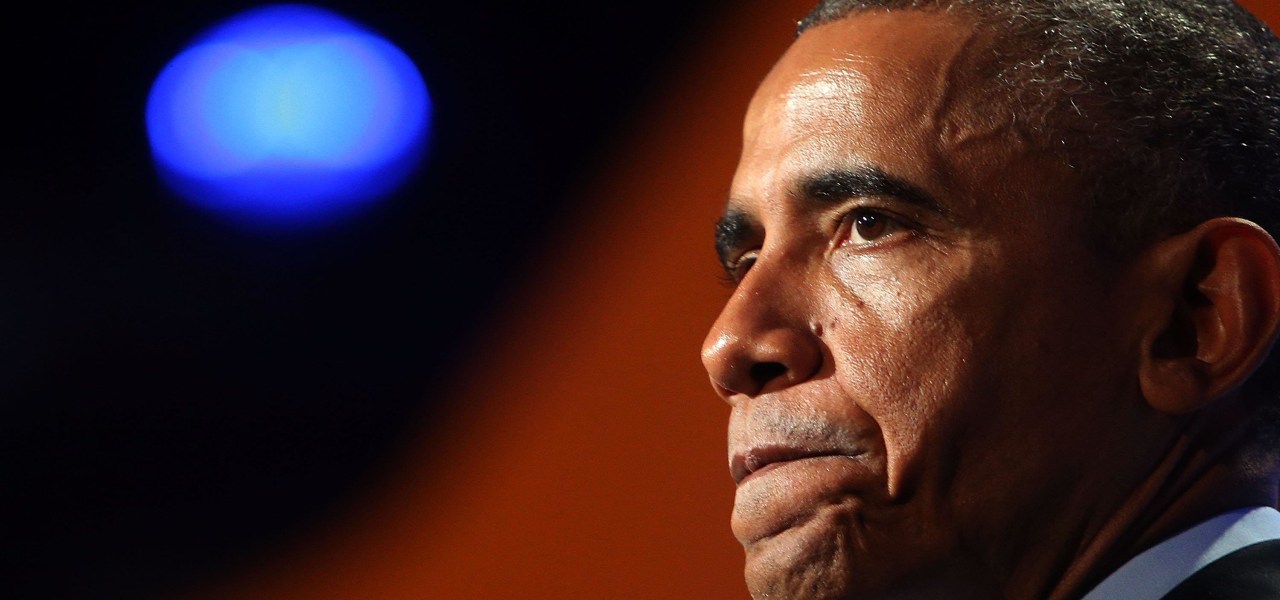 Spencer Platt / Getty Images
Spencer Platt / Getty Images
Obama Returning to Hispanic Caucus Event Amid Some Latino Anger
In
the crossfire with sectors of the Latino community over immigration,
President Barack Obama nevertheless plans to attend the annual gala of
the Congressional Hispanic Caucus Institute next month, the White House
told NBC Latino.
Obama’s address at the
institute’s gala next week will come just a month and two days before
the Nov. 4 elections, when, among other things, the majority party of
the Senate will be determined.
“His attendance
reflects his ongoing commitment to the Latino community and the future
of Latino and Latina leaders that CHCI works so hard to develop each
year,” CHC chairman Rep. Rubén Hinojosa said in a statement.
Airstrikes Raise the Stakes for Obama's U.N. Pitch
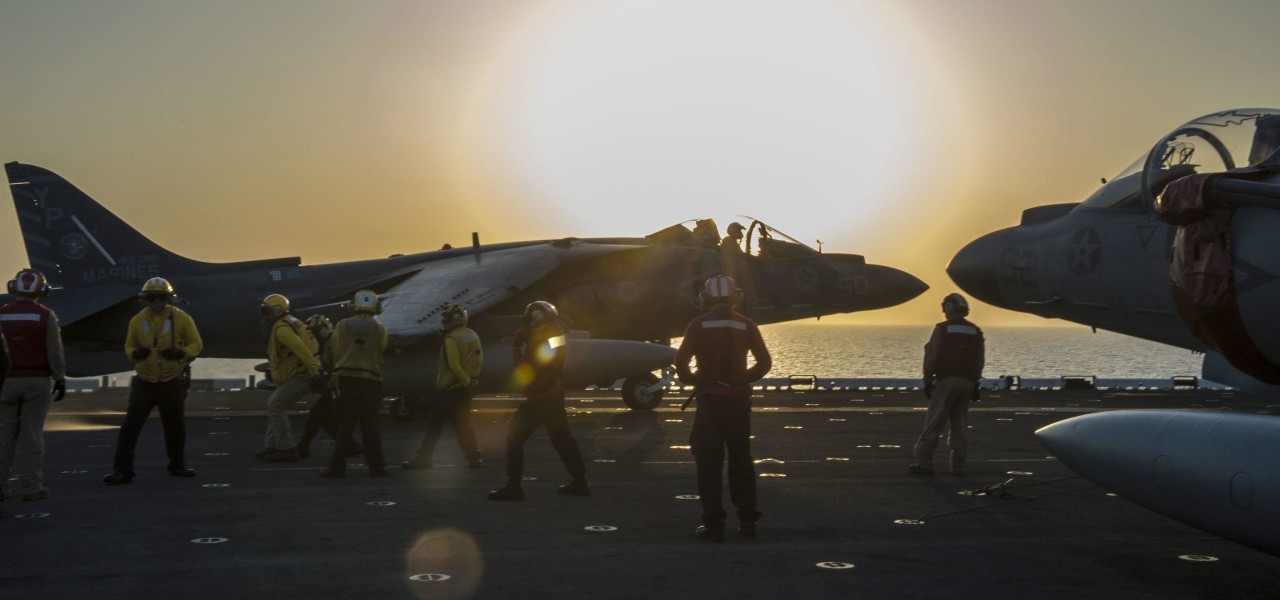 U.S. Navy via EPA
U.S. Navy via EPA
Airstrikes Raise the Stakes for Obama's U.N. Pitch
This
week’s gathering at the United Nations in New York was already slated
to be a big event in President Obama’s efforts to rally the world
against ISIS. And now it’s even bigger. Beginning at approximately 8:30
pm ET last night, the United States -- with help from five Arab nations
-- launched airstrikes against ISIS targets in Syria, escalating the
military campaign against ISIS for the first time beyond Iraq. Those
airstrikes change the tone and the focus at the U.N. meeting. How do
Russia and the Security Council react, especially since Syria is a
Russian ally? What about other nations who had been questioning the
United States’ resolve? Does the U.S. get any additional participation
from other nations? Do already-supportive nations become a little more
supportive? Bottom line: The timing of this new military campaign inside
Syria couldn’t be more striking. NBC’s Kristen Welker reports that
President Obama will make a statement from the White House at 10:00 am
ET before he leaves for the U.N. meeting in New York. The rest of the
president’s schedule: At 12:50 pm ET, he speaks at the U.N.’s climate
summit; at 2:00 pm, he gives a speech at the Clinton Global Initiative;
at 5:15 pm ET, he attends an event for the Democratic Senatorial
Campaign Committee (does he keep that event given the airstrikes?); and
at 9:00 pm ET, he and the first lady attend a reception for the visiting
world leaders.
Khorasan Testing Bombs for Use on Planes, Weighing Knife, Gun Attacks
Khorasan Testing Bombs for Use on Planes, Weighing Knife, Gun Attacks
The Syria-based terror group Khorasan
has tested explosive devices that they plan to bring aboard planes, a
U.S. source briefed on the latest intelligence told NBC News.
The source said the U.S.
had “information on specific, concrete plotting” against aviation
targets by Khorasan, but said there was no “imminent” danger against any
specific flight, individual or target.
U.S. and British sources
also said that the U.K. and Australia had intercepted messages
indicating the real possibility of a low-level “knife and gun” attack by
jihadis who have returned from Syria against the public in a Western
nation in order to generate maximum fear.
Putin Considers Throwing Russia Into ISIS Fight: Report
Putin Considers Throwing Russia Into ISIS Fight: Report
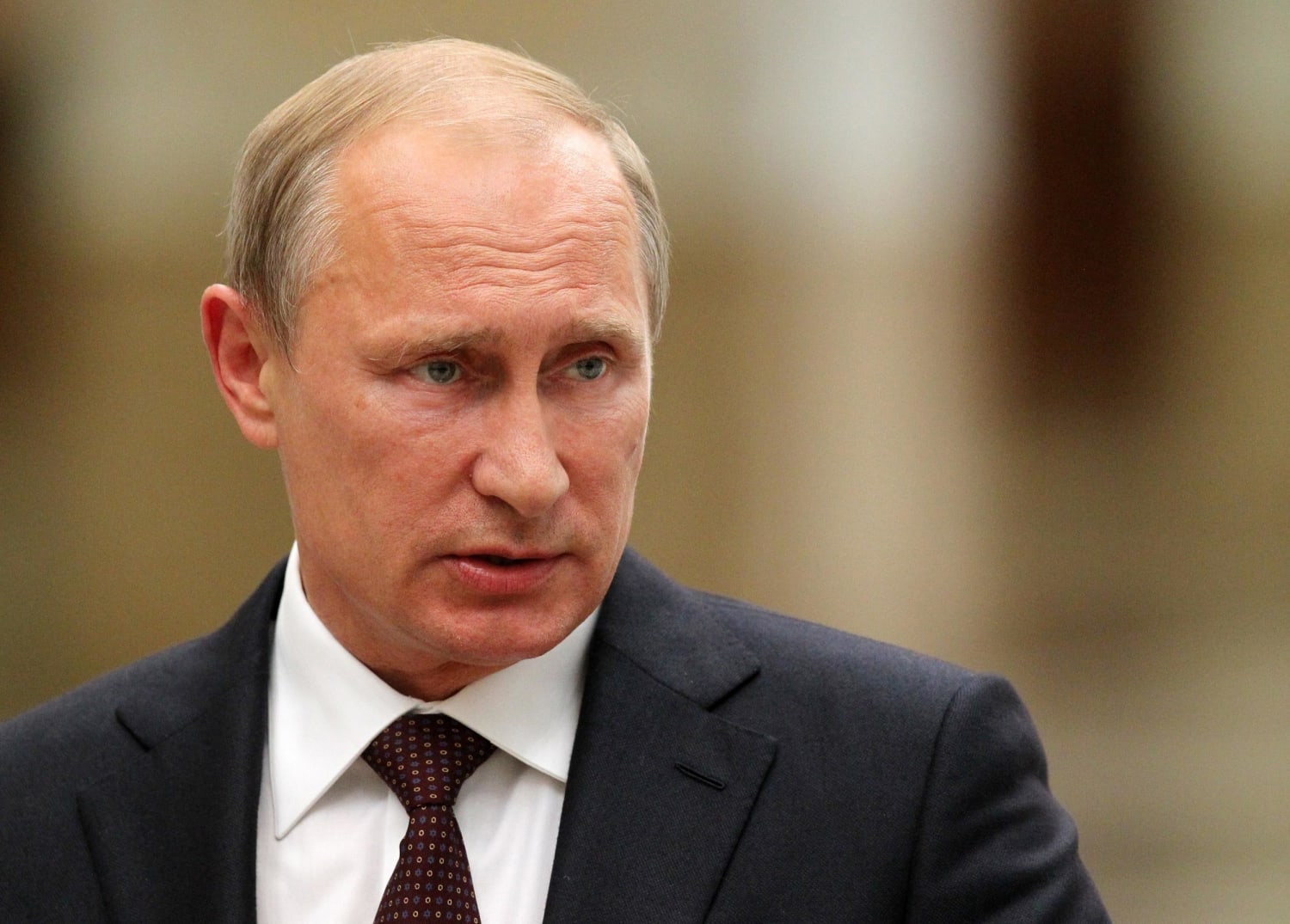

The
next weapon in the fight against Islamic extremists in the Middle East
might be Vladimir Putin. The Russian president discussed with his
Security Council on Monday potentially contributing to fighting ISIS,
according to Russian news agencies. The council "exchanged opinions on
possible forms of cooperation with other partners on a plan to counter
Islamic State in the framework of international law," Interfax quoted a
Kremlin spokesman as saying.
The United States has
been trying to build a broad coalition to thwart ISIS militants in Syria
and Iraq, but Russia has not been part of the conversation. “The
anti-ISIL coalition is not a club party — we do not expect any
invitations and we are not going to buy entry tickets,” said Ilya
Rogachev, an official in Russia's Foreign Ministry said last week. But
Russia is a supporter of Syrian President Bashar al-Assad, whose regime
is trying to stave off an insurgency that has included ISIS fighters.
ISIS could potentially
threaten Moscow directly, too. The group's ranks include Muslims from
Russia's North Caucasus region, who have been waging their own
insurgency in the mountainous region following two wars between Moscow
and separatists in Chechnya.
Obama’s Poll-Driven Foreign Policy
No one has promoted the dangerous notion that war is optional more than the president.
 Some
pundits are saying that President Obama has been floundering in his
response to the Islamic State crisis because public-opinion polls show
most Americans don’t want another war.
Some
pundits are saying that President Obama has been floundering in his
response to the Islamic State crisis because public-opinion polls show
most Americans don’t want another war.
In all my 84 years, I cannot recall a time when most Americans wanted war. That is something we should be proud of. But wars are not always optional.
Even World War II — which some have called “the good war” — was
not something that most Americans wanted. But the Japanese took that
decision out of our hands when they bombed Pearl Harbor on December 7,
1941. And Hitler removed any possible doubt when he declared war on us
shortly afterward, making sure that we were in the war all over the
world.No one has promoted the dangerous notion that war is
optional more than Barack Obama. He declared peace in Iraq when he
pulled American troops out, and he declared victory over al-Qaeda
because his administration had killed bin Laden (with an assist from the
Navy SEALS). But all this make-believe has come back to haunt him, as
make-believe often does.

(Joe Raedle/Getty Images)
In all my 84 years, I cannot recall a time when most Americans wanted war. That is something we should be proud of. But wars are not always optional.
The Divine Right of Barack Obama
The president who began as a champion of the legislature’s prerogative to declare war has morphed into Napoleon.

Asked earlier today how long he expected the bombing of Syria to last, Lieutenant General William C. Mayville Jr. advised reporters to think “in terms of years.” “Last night’s strikes,” Mayville confirmed, “were only the beginning.” A mile or so away, on the White House lawn, Barack Obama struck a similarly defiant note. “We’re going to do what is necessary to take the fight to this terrorist group,” the president explained, before assuring those present that the United States was but one part of a global alliance that stood “shoulder to shoulder . . . on behalf of our common security.” “The strength of this coalition,” Obama added, “makes clear to the world that this is not just America’s fight alone.” This much, at least, was true. Among the nations that have signed on to the attacks are Bahrain, Qatar, Saudi Arabia, Jordan, and the United Arab Emirates — all vital accomplices in the winning of hearts and minds. And yet, for all the cosmopolitanism, one crucial ally was conspicuously missing from the roster of the willing: the Congress of the United States.

Asked earlier today how long he expected the bombing of Syria to last, Lieutenant General William C. Mayville Jr. advised reporters to think “in terms of years.” “Last night’s strikes,” Mayville confirmed, “were only the beginning.” A mile or so away, on the White House lawn, Barack Obama struck a similarly defiant note. “We’re going to do what is necessary to take the fight to this terrorist group,” the president explained, before assuring those present that the United States was but one part of a global alliance that stood “shoulder to shoulder . . . on behalf of our common security.” “The strength of this coalition,” Obama added, “makes clear to the world that this is not just America’s fight alone.” This much, at least, was true. Among the nations that have signed on to the attacks are Bahrain, Qatar, Saudi Arabia, Jordan, and the United Arab Emirates — all vital accomplices in the winning of hearts and minds. And yet, for all the cosmopolitanism, one crucial ally was conspicuously missing from the roster of the willing: the Congress of the United States.
Progressives Enthroned

(Library of Congress)
‘He
is at once God and their intimate friend,” wrote journalist
Martha Gellhorn back in the 1930s of President Franklin Roosevelt. The
quote comes from The Roosevelts, the new Ken Burns documentary that PBS airs this month. But the term “documentary” doesn’t do The Roosevelts justice.
“Extravaganza” is more like it: In not one but 14 lavish hours, the
series covers two great presidents, Theodore Roosevelt, who served in
the first decade of the last century, and Franklin Roosevelt, who led
our nation through the Great Depression and to victory in World War II.
In his use of the plural, Burns correctly includes a third Roosevelt:
Eleanor, who as first lady also affected policy, along with her spouse.
The contention of The Roosevelts is a plausible one: that this New York family altered the presidency forever, converting the office from a near-ceremonial post into one of near-regal responsibility for domestic policy. The Roosevelts both favored active progressivism and denied that any other presidential posture could do the trick. What “26” and “32” hoped, as one of the commenters in the film, George F. Will, notes, was that “the role of the central government from now on [would be] to secure the well-being of the American people.”
The contention of The Roosevelts is a plausible one: that this New York family altered the presidency forever, converting the office from a near-ceremonial post into one of near-regal responsibility for domestic policy. The Roosevelts both favored active progressivism and denied that any other presidential posture could do the trick. What “26” and “32” hoped, as one of the commenters in the film, George F. Will, notes, was that “the role of the central government from now on [would be] to secure the well-being of the American people.”











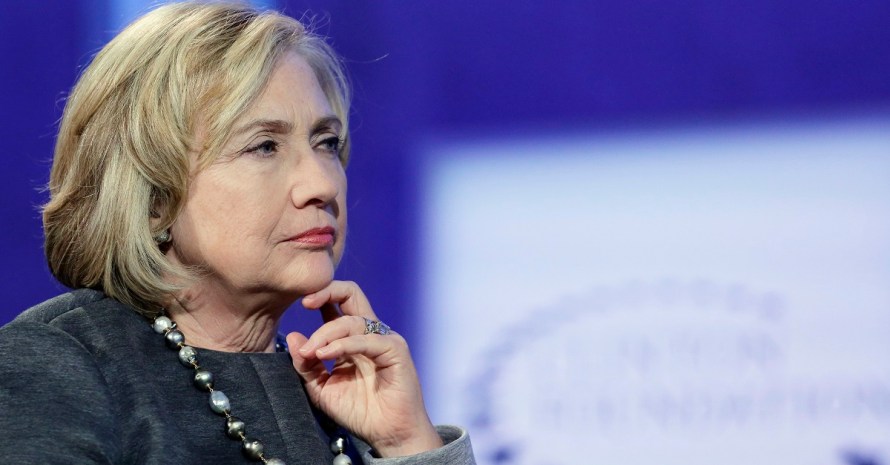


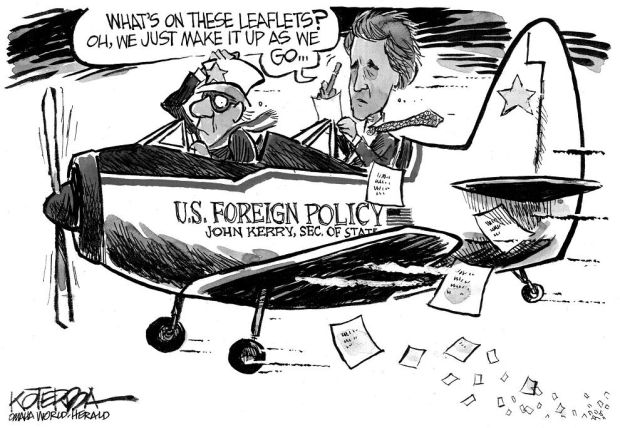

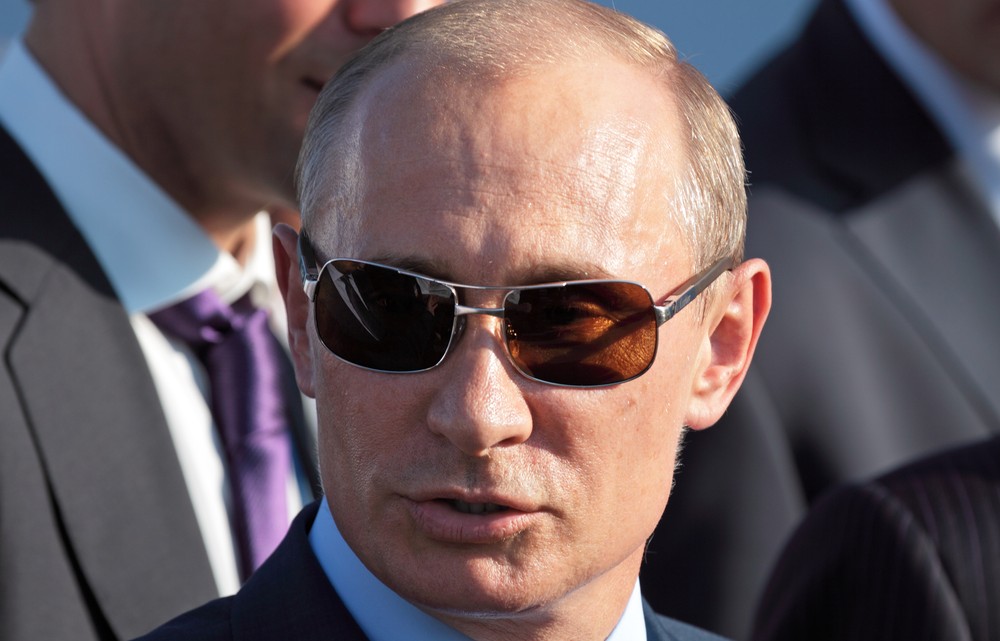



No comments:
Post a Comment